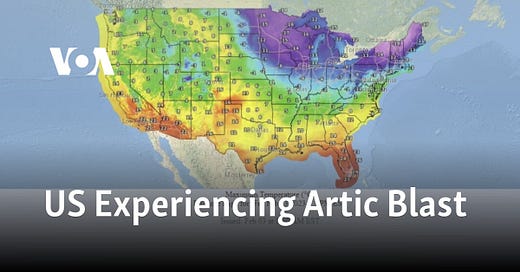I have taken care of some very, very cold patients over the years. When I was a medical student there was a man who accidentally body-surfed a river, in winter, in northern West Virginia. There was one who, in an attempt to kill himself, stood resolutely in the middle of a pond in January, up to his waist in water, until he very nearly succeeded in dying.
But two of the saddest were older individuals. One wandered outside in only a thin gown in the Indiana cold. The other lay inside his house in South Carolina as the temperature progressively dropped because of lack of functioning heat. His body temperature, by the time he was discovered, was in the 70s. Fortunately both survived. I was working one winter shift last year when an older woman in town went to check her mail, fell down a hillside and could not get up. She was found dead the next day, presumably due to exposure. All of these stories illustrate an important point.
Cold is deadly. This is something we take for granted in modern times. Many of us live with heat that springs to life with the flip of a thermostat or starter on the fire. This luxury would have seemed kingly to our ancient ancestors, who gathered wood with frost-numbed fingers to start a small fire just to cook and stay alive. They knew all too well that people died in winter, not only of starvation but simply of cold.
Those who are poor, or are not able to get help on their own, those dependent on friends, family, neighbors or case-workers can easily suffer from the cold, even inside the apparent shelter of their homes. Because a structure does not imply that one has power; or heat. (Or water for that matter.)
The homeless, the mentally ill, the addicted, suffer particularly during these times. It’s why ERs are full and municipalities and churches often open “warming centers” to help people survive when nature exerts its power. (I’m proud to say that our church is doing this for the next few days of arctic blast.)
Furthermore, some people in an attempt to stay warm will burn un-ventilated kerosene heaters or have wood fires in blocked chimneys. The poor, the old, the mentally challenged may suffer not only from hypothermia but also from carbon monoxide poisoning and complain of headaches or confusion, or sometimes complain of nothing and simply drift off to death in their sleep. Deadly fires also occur when vulnerable persons struggling to stay warm have small warming fires that get out of control.
The point being, winter has unique challenges for many individuals. And it would be good for us all to consider that neighbors, relatives, friends and fellow church-members may not see winter as a time of snowy, icy delight but as a months long time of suffering until spring returns.
So remember to check on those folks. And be careful to keep smoke and carbon monoxide functioning in your homes.
Deadly weather is upon us. But as always, sweet spring is not so far away. And before long, I’ll be complaining about the heat.




As I remember it, since I am 87, I was always cold in the wintertime.